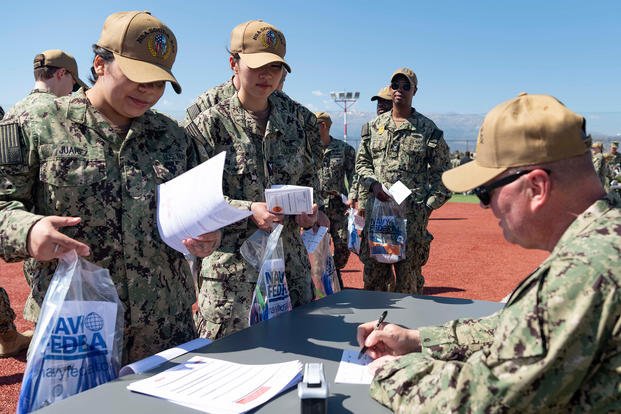A Republican lawsuit in Pennsylvania that targeted ballots cast by U.S. citizens overseas, including U.S. troops and their family members, was dismissed by a federal judge on Tuesday.
Calling the Republicans’ request to set aside overseas ballots until the identities of the voters can be verified a “nonstarter,” U.S. District Judge Christopher Conner ruled that the lawsuit was brought too close to the election and that concerns about fraud were purely hypothetical.
“An injunction at this late hour would upend the Commonwealth’s carefully laid election administration procedures to the detriment of untold thousands of voters, to say nothing of the state and county administrators who would be expected to implement these new procedures on top of their current duties,” wrote Conner, an appointee of President George W. Bush.
Read Next: Peterson Space Force Base Dining Hall Closed Indefinitely After ‘Significant Safety Incident’
The Pennsylvania lawsuit was one of three filed by Republicans in recent weeks targeting overseas ballots in key swing states ahead of the Nov. 5 election. The other two lawsuits, in Michigan and North Carolina, were also dismissed last week, though the Republican National Committee appealed those decisions.
Military families and their advocates have been warning the three lawsuits threatened to disenfranchise military voters, who make up a large chunk of the overseas voting population.
The advocates expressed relief at the Pennsylvania lawsuit’s dismissal Tuesday.
“This ruling and others like it have confirmed in the court of law what we already knew to be true on the ground — that our elections are safe and secure, and that military and overseas ballots deserve protection,” Sarah Streyder, executive director of Secure Families Initiative, said in an emailed statement. “To quote a military spouse in our membership: ‘If you want a strong military, you must provide a strong democracy for them to participate in as they defend it.'”
Secure Families Initiative, an advocacy group for military families that focuses in part on voting rights, joined an amicus brief in the case that argued the lawsuit was part of a broader GOP plot to undermine faith in the election and sought to “exploit as pawns in their misguided political game active-duty troops, military families, foreign service members and others whose lives have been shaped by and evince true patriotic sacrifice.”
At issue is a law called the Uniformed and Overseas Citizens Absentee Voting Act, or UOCAVA. The law, enacted in 1986, allows U.S. citizens living abroad to vote using absentee ballots.
The Pennsylvania lawsuit specifically argued that state laws that exempt UOCAVA voters from providing identification to register to vote make those ballots susceptible to fraud and foreign influence.
But, Pennsylvania officials and other supporters of the law maintained, the state’s rules have been in place since 2012 with no evidence of widespread issues.
The lawsuit was brought by six GOP congressmen from Pennsylvania: Reps. Guy Reschenthaler, Dan Meuser, Glenn “GT” Thompson, Lloyd Smucker, Mike Kelly and Scott Perry. All six voted against certifying President Joe Biden’s win in the 2020 election. Also added as a plaintiff to the lawsuit was an organization called PA Fair Elections that has a history of promoting debunked election conspiracy theories.
The lawsuit asked for all overseas ballots to be set aside and not counted until the identities of the voters could be verified in a new process.
But Conner wrote in his decision that the plaintiffs never articulated what exactly that new process should entail.
Conner also knocked the argument that foreign powers could interfere with the ballots, pointing to the plaintiff’s lawyer’s own admission during oral arguments that all they had were “concerns.”
“Plaintiffs cannot rely on phantom fears of foreign malfeasance to excuse their lack of diligence,” Conner wrote.
The judge also said the congressmen “provide no good excuse for waiting until barely a month before the election to bring this lawsuit,” adding that they all “successfully sought federal office several times after the relevant statutes took effect.”
While advocates applauded Tuesday’s ruling in Pennsylvania, they also had previously expressed concern that simply filing the lawsuits would dissuade military voters from casting their ballots.
“Unfortunately, even if these lawsuits were to be struck down, damage has already been done,” Streyder said on a conference call with reporters earlier this month. “Reckless rumors have been spread to scare Americans and cast doubt on our elections, and we are already hearing from military voters in all states who feel discouraged from participating if they have concern their ballot won’t even be counted.”
Related: GOP Lawsuits Threaten to Disenfranchise Military Voters, Advocates Warn
Story Continues
Read the full article here

